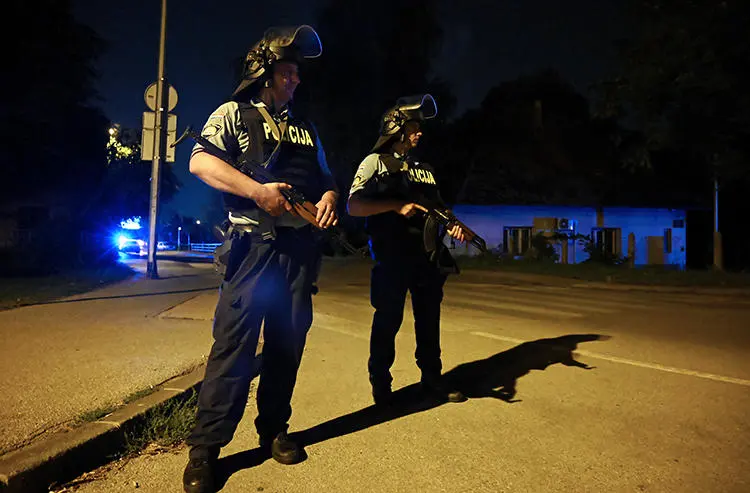On September 16, 2019, Croatian police arrested Gordan Duhaček, a reporter working for news website Index.hr, as he was about to leave the country at Zagreb airport, and detained him until a court hearing the following day, according to a report by his employer and the journalist, who spoke to CPJ via messaging app.
On September 17, the Misdemeanor Court in Novi Zagreb fined Duhaček 700 Croatian kunas ($100) for insulting public authorities in a satirical tweet he posted in July 2018, according to regional news website Balkan Insight. The tweet included the acronym “ACAB” (‘All Cops Are Bastards’).
Duhaček told CPJ that he was released after the hearing on September 17, and said he is appealing the verdict and has not paid the fine.
The Misdemeanor Court was also scheduled to hear a case on another tweet of Duhaček’s on September 19, but that hearing was postponed and a new date has not been set, Duhaček told CPJ. That hearing involved an August 2019 tweet in which Duhaček satirically rewrote a patriotic Croatian song in a way that allegedly offended “citizens’ moral feelings,” according to Balkan Insight.
Duhaček told CPJ that he suspected the complaints sparking each case were filed by “right wing trolls,” but said their identities have not been made public.
According to Balkan Insight, Croatian Interior Minister Davor Božinović said that Duhaček was not detained for his Twitter posts, but for failing to respond to a police summons.
Duhaček told CPJ that he received a summons, but said he went to a police station on September 15 to notify authorities that he planned to travel to Germany, and said a police officer told him that he was free to travel but that he should contact the police when he returned.
In an emailed statement to CPJ, the Ministry of Interior, which oversees the Croatian police, said that a court had determined that Duhaček’s tweets did not “involve free expression of opinion but [were] rather insults to police officers.” The statement maintained that police detained Duhaček in order to “ensure his presence before the competent court.”
[Editor’s note: This article has been updated to include the Ministry of Interior’s response.]
